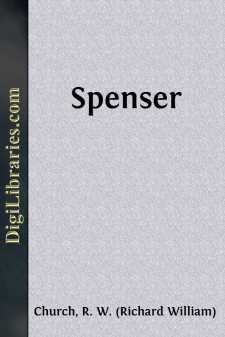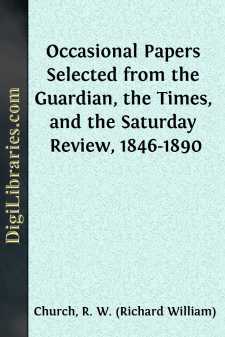Categories
- Antiques & Collectibles 13
- Architecture 36
- Art 48
- Bibles 22
- Biography & Autobiography 813
- Body, Mind & Spirit 142
- Business & Economics 28
- Children's Books 14
- Children's Fiction 11
- Computers 4
- Cooking 94
- Crafts & Hobbies 4
- Drama 346
- Education 46
- Family & Relationships 57
- Fiction 11829
- Games 19
- Gardening 17
- Health & Fitness 34
- History 1377
- House & Home 1
- Humor 147
- Juvenile Fiction 1873
- Juvenile Nonfiction 202
- Language Arts & Disciplines 88
- Law 16
- Literary Collections 686
- Literary Criticism 179
- Mathematics 13
- Medical 41
- Music 40
- Nature 179
- Non-Classifiable 1768
- Performing Arts 7
- Periodicals 1453
- Philosophy 64
- Photography 2
- Poetry 896
- Political Science 203
- Psychology 42
- Reference 154
- Religion 513
- Science 126
- Self-Help 84
- Social Science 81
- Sports & Recreation 34
- Study Aids 3
- Technology & Engineering 59
- Transportation 23
- Travel 463
- True Crime 29
Bacon
Categories:
Description:
Excerpt
CHAPTER I.
EARLY LIFE.
The life of Francis Bacon is one which it is a pain to write or to read. It is the life of a man endowed with as rare a combination of noble gifts as ever was bestowed on a human intellect; the life of one with whom the whole purpose of living and of every day's work was to do great things to enlighten and elevate his race, to enrich it with new powers, to lay up in store for all ages to come a source of blessings which should never fail or dry up; it was the life of a man who had high thoughts of the ends and methods of law and government, and with whom the general and public good was regarded as the standard by which the use of public power was to be measured; the life of a man who had struggled hard and successfully for the material prosperity and opulence which makes work easy and gives a man room and force for carrying out his purposes. All his life long his first and never-sleeping passion was the romantic and splendid ambition after knowledge, for the conquest of nature and for the service of man; gathering up in himself the spirit and longings and efforts of all discoverers and inventors of the arts, as they are symbolised in the mythical Prometheus. He rose to the highest place and honour; and yet that place and honour were but the fringe and adornment of all that made him great. It is difficult to imagine a grander and more magnificent career; and his name ranks among the few chosen examples of human achievement. And yet it was not only an unhappy life; it was a poor life. We expect that such an overwhelming weight of glory should be borne up by a character corresponding to it in strength and nobleness. But that is not what we find. No one ever had a greater idea of what he was made for, or was fired with a greater desire to devote himself to it. He was all this. And yet being all this, seeing deep into man's worth, his capacities, his greatness, his weakness, his sins, he was not true to what he knew. He cringed to such a man as Buckingham. He sold himself to the corrupt and ignominious Government of James I. He was willing to be employed to hunt to death a friend like Essex, guilty, deeply guilty, to the State, but to Bacon the most loving and generous of benefactors. With his eyes open he gave himself up without resistance to a system unworthy of him; he would not see what was evil in it, and chose to call its evil good; and he was its first and most signal victim.
Bacon has been judged with merciless severity. But he has also been defended by an advocate whose name alone is almost a guarantee for the justness of the cause which he takes up, and the innocency of the client for whom he argues. Mr. Spedding devoted nearly a lifetime, and all the resources of a fine intellect and an earnest conviction, to make us revere as well as admire Bacon. But it is vain. It is vain to fight against the facts of his life: his words, his letters. "Men are made up," says a keen observer, "of professions, gifts, and talents; and also of themselves." With all his greatness, his splendid genius, his magnificent ideas, his enthusiasm for truth, his passion to be the benefactor of his kind; with all the charm that made him loved by good and worthy friends, amiable, courteous, patient, delightful as a companion, ready to take any trouble—there was in Bacon's "self" a deep and fatal flaw. He was a pleaser of men. There was in him that subtle fault, noted and named both by philosophy and religion in the ÐÐÐÑвÐÑρεσκοÐÐвÐÑ of Aristotle, the ÐÐÐÑвâ¬νθρωπÐÐÐРбρεσκοÐÐвÐÑ of St. Paul, which is more common than it is pleasant to think, even in good people, but which if it becomes dominant in a character is ruinous to truth and power. He was one of the men—there are many of them—who are unable to release their imagination from the impression of present and immediate power, face to face with themselves. It seems as if he carried into conduct the leading rule of his philosophy of nature, parendo vincitur. In both worlds, moral and physical, he felt himself encompassed by vast forces, irresistible by direct opposition. Men whom he wanted to bring round to his purposes were as strange, as refractory, as obstinate, as impenetrable as the phenomena of the natural world....




